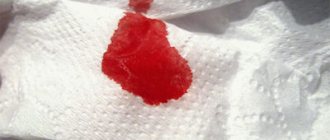Peculiarities
- Many mothers often confuse or equate spitting up and vomiting. In reality, the processes are different. In the first case, there should be no sour smell and no bright yellow tint to the liquid. When a baby vomits, his abdominal muscles become very tense.
- Regurgitation is normal for children in the first months of life. At 3-4 months, babies burp less often. By 6-7 months, in a sitting position, infants learn to control the processes of swallowing. Finally, by 9 months, regurgitation after feeding completely ceases to bother the child.
- Typically, no special treatment is required in cases of simple infrequent regurgitation; preventive measures are generally recommended. However, to find out why a child spits up when he is already one year old, you should consult a doctor. This problem may be associated with a serious disruption of the body’s functioning or developing pathologies. Although sometimes a baby older than a year burps as a result of increased activity after feeding, when the food simply has not had time to be digested.
Possible complications
- Cramps due to an imbalance in the body.
- Entry of vomit into the respiratory tract leads to suffocation and pneumonia. A dangerous complication in the absence of help for a child is death.
- Exhaustion of the body. Nutrients and minerals come out.
- Disruption of the gastrointestinal tract, damage to the mucous membranes of the stomach and intestines.
- Dehydration due to loss of large amounts of fluid.
- Stomach acid enters the oral cavity and damages tooth enamel.
- Loss of body weight.
- Loss of consciousness, coma.
To prevent vomiting in a child, control the diet, explain to the child the need for hygiene and clean hands. When going abroad, take into account the difference in climatic conditions, this can cause vomiting and stool disorders. Do not allow the baby to move a lot immediately after eating, do not feed at night. Limit your consumption of carbonated drinks and sweets.
Vomiting is a symptom present in various conditions and diseases. When it occurs in children, the cause should not always be immediately recognized. Even experienced mothers begin to panic, but this is absolutely not worth doing. After all, the nervous situation around the baby can again provoke an attack.
Many parents, when vomiting occurs, think that their child has been poisoned, but in addition to poisoning, attacks can be triggered by other factors:
- binge eating;
- diseases of the stomach and intestines;
- inflammation of the gallbladder;
- acute appendicitis;
- severe cough due to colds and whooping cough;
- nervous disorders.
Varieties
If a child burps too often or is not the only disturbing symptom, you must definitely pay attention to the volume of fluid being rejected, its thickness and color. By the characteristics of regurgitation, you can determine what the problem is.
- Why do babies burp not only through their mouths, but also through their noses? In fact, there is nothing surprising in the phenomenon, because the baby’s throat, nose and mouth are interconnected. The whole problem is in the stomach; air gets into it along with food. Sometimes the swallowing process is accompanied by hiccups and coughing, and regurgitation occurs through the sinuses. It is worth noting that regurgitation through the nose is dangerous because it injures the mucous membrane and can lead to the appearance of adenoids or polyps.
- When, after feeding, the baby begins to spit up profusely like a fountain (read: why does he spit up like a fountain?), it is better to immediately go to the doctor. The fact is that such regurgitation often indicates brain injuries received during childbirth, as well as problems of the gastrointestinal tract. Disruptions in the digestive process are called dyspepsia and are most often caused by poor quality nutrition. But problems with the brain often cause damage to the nervous system. Severe regurgitation in such a situation is accompanied by weight loss, lethargy, and tremors of the chin and hands. In addition, a child may spit up like a fountain in case of poisoning or intestinal infection. Then the regurgitation is more like gagging.
- If a child vomits cottage cheese, then the main reason lies in overfeeding. Children can be insatiable, and sometimes mothers have too much breast milk. If your baby spits up while being fed formula, it is again possible that he was given too much food. In such conditions, immediately after feeding, babies regurgitate pure milk or slightly curdled milk. Also, such regurgitation is often caused by bloating in the baby. Typically, stomach problems in young children are associated with improper nutrition of the nursing mother. Even constipation and intestinal colic can increase pressure in the abdominal cavity and interfere with the movement of food. In this case, the baby often strains first, and only then burps. Sometimes the answer to the question “Why does the child spit up mostly curd?” lies in the weak functioning of the lower esophageal sphincter. However, as the baby grows older, the problem disappears on its own.
- To determine why the baby is spitting up blood or something brown, a nursing mother needs to examine her breasts. It happens that the nipples crack during feeding, and the baby receives droplets of blood along with the milk. If the baby burps and strains a little, it is possible that a small vessel at the end of the esophagus has ruptured. Sometimes regurgitation of blood and dark masses is caused by reflux - the reverse flow of fluid in the hollow organs. In this case, frequent regurgitation requires medical supervision, because it leads to a slowdown in the baby’s growth and development.
- Regurgitation with mucus is of great concern to parents. If your baby was born recently, the spit-up may just be leftover amniotic fluid. When mucus is combined with curdled milk during regurgitation, we are most likely talking about a cold or intestinal disease. Infants have a weak immune system and it is easy to catch an infection. It may be accompanied by diarrhea and fever.
- Sometimes mothers have to figure out why their baby is spitting up clear liquid or water profusely and often. Typically, such regurgitation does not occur immediately after feeding. The main reasons are increased salivation in the baby, as well as the lack of necessary digestive enzymes. If the stomach does not get rid of excess food in time, it releases water with small curd particles to relieve heaviness. Sometimes the milk does not curd. The clear liquid is then simply serum.
- If your small child spits up liquid that is greenish or yellow or brownish-yellow in color, you need to contact a gastroenterologist. Usually the cause of such regurgitation, usually sharp, in the form of a large fountain, is reflux, or intestinal obstruction.
When to call a doctor
If a child vomits mucus, it is advisable to invite a doctor to your home or call an ambulance as soon as possible. You need to take care of this urgently if:
- The baby has had a fever for several days now, which is difficult or impossible to bring down with modern children's antipyretic medications based on ibuprofen or paracetamol;
- Nausea was accompanied by stool disorder; impurities of blood and mucus were visible in the stool;
- An older child complains of abdominal pain.
Other factors
However, sometimes regurgitation is frequent but inconsistent. It is worth mentioning a few more reasons, here the child sometimes spits up cottage cheese or simply releases water through the corners of his mouth:
- pathology. We are talking, for example, about a hernia of the diaphragm, increased intracranial pressure. Such conditions are characterized by a general picture: the baby is crying and has not eaten the required amount of food;
- Many young children have difficulty with teething. Sometimes your baby may react to discomfort by spitting up infrequently. Associated with teething, intestinal activity is often disrupted;
- Sometimes some parents swaddle their children tightly before feeding, and after eating they try to make them active. A tight diaper or extra strain after eating can disrupt the digestive process.
BABY burps constantly
Please tell me, my baby on breastfeeding constantly burps 5-6 times after eating in large volumes, and immediately starts asking for the breast. Maybe there is something wrong with the milk, what should I do? And in a month he gained only 500g.
don't you feed it after eating? We had the same problem. he ate, if you turn him a little he immediately spits up. and if you leave it alone for 15 minutes, then everything is fine
Up to a year, regurgitation is normal. The valve that holds the food may not have closed. How many months? 500 grams can be quite a decent weight gain. In large quantities - how much? If it’s a fountain, then it’s serious. if less, then it is quite acceptable. Spitting up to 20 times a day is considered normal. Maybe he doesn't grab the breast correctly? You need to take it very deep, taking the entire nipple halo. Hold it upright, or put it on your shoulder, tummy down for about 20 minutes.
Consult your pediatrician. There are antireflux mixtures. And an examination by a gastroenterologist would not hurt if he is more than 3-4 months old. How old is he now?
Antireflux is a medicinal mixture, any company produces mixtures. It contains gum additives, which swells like jelly and prevents it from splashing back out of the stomach. It is quite harmful and is prescribed for serious reasons. You can’t take it for a long time, it’s harmful to your health.
Let's sum it up
Various diseases can cause nausea and vomiting. An experienced doctor can understand the reasons; he must be called without delay if an attack occurs. Delay is dangerous due to the development of dehydration and even coma.
In the morning, the child burped and coughed with lime green snot. Then again a little more. This alarmed me. Drank coal. Then I’ll figure it out. The stool is normal, not diarrhea or constipation. Nothing hurts, temperature is 39, they gave me smecta and charcoal. Pulled it out light green with pieces of coal. I slept almost nothing all day, ate crackers, water, and an egg. The temperature was brought down with Nurofen. At night the temperature rose to 40.1 and they called an ambulance. They examined, plucked, injected analgin and left. Didn't vomit. In the morning, now 10 am, I threw up a lot of light green colored mucus with pieces of mucus, like snot. What to do? The temperature rose again to 39.5.
Why does a baby often spit up: the main reasons
Most families with a newborn baby are faced with the problem of regurgitation. This phenomenon frightens parents because it is very similar to vomiting. However, regurgitation is often not associated with pathological processes and is quite acceptable in infancy. Why does a newborn spit up? Is there anything I can do to help him? Let's discuss.
Is it normal for a baby to spit up?
Yes, there is nothing criminal about this, and, with the exception of special cases, regurgitation is considered a physiological process. More than 70% of infants experience this phenomenon before the age of six months.
Regurgitation is the release of small portions of undigested or semi-digested food (most often mother's milk) from the stomach. If the baby is not capricious, smiles and is gaining weight well, you don’t have to worry too much. But when the baby behaves restlessly, loses weight over time, and spits up constantly like a fountain, be sure to consult a doctor as soon as possible. We'll discuss why this happens a little later.
Either vomiting or regurgitation
Every mother needs to be able to distinguish between these two conditions, because our further actions will depend on what we are faced with.
Abundant volume of secreted masses, accompanied by spasms; vomiting is preceded by pale skin, nausea, and salivation.
As you can see, vomiting is a phenomenon that brings with it spasms and pain; a child will never be cheerful in such a state, while he may not particularly react to regurgitation.
Causes of regurgitation
The digestive system of a newborn baby is in the formative stage, and this is the main factor that the baby often spits up. Here are some reasons why this phenomenon occurs:
Binge eating. As Winnie the Pooh's friend said
Source
Mucus in baby's throat
Causes of mucus in the throat
It happens that, having formed in the nose, sinuses or nasopharynx, mucus begins to accumulate and thicken, and since the child’s nose is stuffy, this thickened mucus moves lower and lower into the throat.
Infections. As a rule, these are viral respiratory diseases of the nasopharynx (sinusitis, pharyngitis, etc.), but bacterial or fungal infections cannot be ruled out.
It must be borne in mind that thickening of mucus is often caused by the fact that the necessary microclimate has not been created in the room where the child is located, in other words, the air in the room is too dry or too warm. According to experts, in a cool (18-20 degrees) and humid room, mucus becomes more liquid and flows more freely through the nose.
When mucus is detected in a child’s throat, it should also be taken into account that its appearance can also be caused by a disturbance in the functioning of the digestive system (since the oral cavity and throat are also its parts). A significant number of diseases of the intestines and stomach are quite capable of affecting the condition of the pharynx and causing the formation of mucus. A reverse reaction is also possible when, on the contrary, snot, having entered the digestive tract, brings with it viable bacteria, which in turn begin to multiply quickly.
Thus, it is important to remember that only a specialist can correctly determine the cause of mucus in the throat (and nasopharynx).
Treatment
Of course, drug treatment should be started only after a thorough examination of the child by a doctor and identification of the causes of the disease. How can you further help your baby? Firstly, thoroughly ventilate the room and, if possible, humidify the air. Quartzizing the room and wet cleaning will also not harm. Secondly, if in ka
Source
Source
My son is now 6 months old. I was exclusively breastfed for 6 months. The neurologist has no complaints about us, ultrasound of the brain is normal, ultrasound of the abdominal cavity is normal (only the liver is slightly enlarged).
At the same time, the child constantly burped after feeding, there were regurgitations even an hour after feeding, holding him up did not help. After treatment for Klebsiella, the regurgitation did not stop.
We were sent to the children's center on Oleko Dundicha for a consultation. By the time we signed up, by the time we got there (sign up 1.5 months in advance), we were 4 months old. The child continued to burp all this time.
One day he burped after feeding him cottage cheese. There were brown inclusions in the curd; it seemed to me that it was blood. She called an ambulance and was taken to the infectious diseases hospital.
The hospital took tests and, without waiting for the results, prescribed treatment with the antibiotic enterofuril. We took antibiotics for five days, the results came back: there were 0-3 leukocytes in the coprogram, no infection was found in the culture. They said that there was no blood in the regurgitation (I brought a napkin with me), that they could not explain this (such regurgitation was never repeated).
We were discharged with a diagnosis of gastroenterocolitis (there was vomiting a couple of times, it seems to me because of the antibiotic, the child apparently did not like it, the stool was greenish, after stopping the antibiotic, it was yellow and mushy).
After discharge, we went to an appointment with a pediatrician at the children's center where we were seen. She prescribed Creon 10,000, and then BififormBaby and took the coprogram.
While taking Creon 10,000, the regurgitation stopped; while taking BififormBaby, it started again, but not immediately. After this treatment in the coprogram there are 20-25 leukocytes in the visual field.
Enterol and Relalife were prescribed. While taking Enterol, the regurgitation stopped, the coprogram after Enterol was 3-4 leukocytes. At the end of taking Relalife, regurgitation began again, coprogram after
Source
Treatment
Treatment for vomiting generally depends on the cause of its occurrence. All necessary medications should be prescribed by a doctor, especially if the child’s condition quickly deteriorates.
- In case of overeating, a diet is prescribed, frequent meals in small portions.
- Intestinal infections are treated with antibiotics. In mild cases, the use of biseptol is acceptable; in severe cases, cefazolin antibiotics are used. It is necessary to use activated carbon to remove toxins from the intestines. It is prescribed in a dose of 1 tablet per 10 kg of body weight. Probiotics used for poisoning include Linex, Bifidum, Bifidobacterin, etc. In a hospital setting, the child is given IVs to restore lost fluid: glucose with ascorbic acid or sodium chloride solution.
- If vomiting during ARVI is caused by high temperature, it is necessary to reduce it with antipyretics: Ibufen, Paracetamol. For the treatment of severe cough due to colds and whooping cough, the following are suitable: licorice root syrup, Bromhexine, Ambrosan.
- Cholecystitis is also treated with the use of penicillin or cefazolin antibiotics. Prescribed to drink infusions of choleretic herbs: corn silk, immortelle, rose hips, stinging nettle.
- Treatment of appendicitis, intestinal obstruction and gastric ulcers is carried out only by surgery. If their symptoms occur, it is necessary to urgently take the child to the hospital.
- No special treatment is required for teething. It is necessary to give the baby water more often so that, along with the liquid, he swallows the excess saliva that has accumulated in the mouth.
Baby poops mucus and blood
Hello, on November 28 I introduced the first complementary foods for 5 months. For my son, Heinz zucchini, half a teaspoon for lunch. From the late evening of that day to this day, frequent stools (every 2 hours) with mucus and blood, if at the beginning there was blood in small veins and not every stool, then at the moment there is less mucus and much more blood. The stool consistency is normal, not diarrhea. I thought that everything would recover on its own within a few minutes. A few days, but apparently we can’t do without medication. Child on IV from 2 months. There is no temperature, the child is active, not capricious.
Related and recommended questions
35 replies
Sorry, but it was already possible to call a doctor or get to him. I don’t think this is related to the zucchini, but some kind of process is going on in the intestines. How much blood is released with each bowel movement, what color is the blood - scarlet or dark? It is quite possible that a serious intestinal disease coincides with the introduction of zucchini.
We are going to the doctor today, there is not a lot of blood, small streaks, but this morning it became much more, it is not scarlet or dark, just red. Can I write to you after my appointment with the doctor to ask for advice about the prescribed treatment, our doctor is on vacation, and that cat is replacing her, I don’t trust her.
Treatment Methods for Green Vomit
After a daily fast, introduce food gradually. In order not to provoke a new attack, after an acute condition, do not eat food that is difficult to digest. To recover from an acute condition, low-fat broths, vegetable purees, and porridge cooked in water are suitable. Don't force feed your baby. Food should be taken in small portions.
Frequent drinking in small portions is recommended. To prevent dehydration, prepare rosehip decoction, raisin water, and still children's mineral water for your baby.
Drug therapy
| Group of drugs | Indications | Representatives of medicines |
| Electrolytes | Prevention of water-salt metabolism disorders | Regidron, Galaktin, Hartmann |
| Sorbents | Removing toxic substances from the body | Activated carbon, polysorb, smecta |
| Enzyme-containing drugs | Preparations for pancreas restoration | Mezim, pancreatin, creon |
| Antiemetic drugs | Stops the gag reflex by affecting the central nervous system | Phosphalugel, Maalox |
| Vitamin and mineral complexes | Saturation of the body with vitamins and minerals that are lost during acute conditions | Alphabet, vitrum |
| Nonsteroidal anti-inflammatory drugs, antipyretic drugs | Lowering temperature, combating inflammatory conditions | Ibuprofen, paracetamol |
Medicines are prescribed by a doctor after preliminary laboratory diagnostic examinations (urine and blood tests are required). Do not self-medicate; medications have contraindications.
To stop vomiting, you can use traditional methods:
- caraway infusion (5 g of raw material is poured with 200 ml of boiling water);
- a decoction of horsetail and unripe walnut fruits (5 g of raw material is added to 1 liter of boiled water, infused);
- adding ginger to tea weakens the gag reflex.
Frequent regurgitation of a baby: normal or pathological?
Young mothers tend to exaggerate problems with their newborns. To understand why a baby often burps, you need to define what often means. Is this harmful for the baby, and then throw a lot of effort into eliminating the supposed frequent regurgitation.
What is regurgitation
Unlike most other organs and systems, the newborn's digestive system is not mature. Therefore, most often the problems of a young mother are related specifically to the baby’s digestion (gas, colic).
Regurgitation, whose scientific name is gastroesophageal reflux, is not a disease. This is a normal phenomenon, the cause of which experts call the swallowing of air during sucking in combination with the immaturity of the lower food sphincter. 70% of babies aged 1 to 4 months regurgitate food at least once every 24 hours.
Moms are concerned about the age at which this unpleasant phenomenon continues. Usually everything goes away by six months, less often - by the child’s first anniversary.
How to tell if your baby is spitting up a lot
There are no standards for the number of regurgitations and the volume of food coming out: everything is individual for each child. There are newborns who spit up after every feeding. Others - less often.
Approximate standards: on average, a child burps 5 times a day, the volume of discharge is no more than 2-3 tablespoons at a time. How do you know how many tablespoons of liquid your baby has burped? After pouring a tablespoon of water onto a towel, compare the size of the stain.
Have symptoms of dehydration appeared (sunken fontanelle, dry skin and tongue, decreased number of urinations - obvious signs)
How dangerous is regurgitation?
There is an important rule regarding regurgitation: you should not put your baby on his back after eating. Why? After burping, he may suffocate if milk gets into his breath
Consultation
The child was born at 32 weeks, weighing 2 kg, height 46 cm, diagnosed with PPNS.
and from 4 months they began to gain weight very poorly and the weight was 6500-7000 for almost 2 months. There was constant regurgitation, sometimes with mucus. after feeding, we carry it in a column - air escapes and may burp 1-2 hours after feeding, either a clear liquid, or curdled liquid, and several times, as if until the stomach is empty. It seems to me that he eats very little, because he still has to express almost 100 grams of milk (while breastfeeding).
The child is mobile, we try to crawl, we roll over from our back to our stomach and back, we can crawl to a toy (head first and on our stomach), we stand confidently on our feet, we hold a mug and can drink, we like to eat from a spoon.
Now we are 7 months old, height 66 cm, the neurologist and pediatrician say that we are developing well and have caught up with our peers, only we are slightly underweight. We tested for dysbacteriosis, everything was negative except for clipsiel (10 to 6 degrees), we did an ultrasound of the brain - no abnormalities were found, blood and urine tests were good.
It was prescribed: massage, pine-salt baths, elcar.
I am worried about constant regurgitation and poor weight gain.
Girls, help, for the first time in my life a child (3 years old) is vomiting. No temperature, active. I woke up and vomited some water, I gave her tea, and after 2 hours I vomited tea with mucus. After this, wheezing is heard in the throat - a lot of mucus. I called the pediatrician and said, give me some smecta to drink, then give me humana elecrolyte, she’ll be vomiting, give me some betagrin + a Creon capsule. She gave me 2 cubes of smecta and she threw up the mucus again. I made an appointment to see a gastroenterologist. week. The daughter is active and cheerful.
I understand that there are no clairvoyants here, but what could it be? When should you call an ambulance? The child is hungry, she has nothing to vomit, when can she feed it and with what? Liquid mashed potatoes, a couple of spoons? Could this be an enterovirus? As I understand it, I need to give her a little water, but often? And when to eat?
Published September 23, 2021, 6:31 pm
RollerDnepr 23 September 2021, 18:33
Are there snot or adenoids?
Foxama 23 September 2021, 18:34
There is no snot, there are adenoids, we did not remove them.
RollerDnepr 23 September 2021, 18:37
We recently removed it. When mine started or had snot, it would accumulate on the adenoids and she would vomit with it. He vomits a whole bowl of snot and only then falls asleep. This could happen 4 times a day
AnnaB September 23, 2021, 6:34 pm
Alina_v12 September 24, 2021, 14:01
The smell of soaked apples, but it is difficult to detect, and urine with the smell may be
Nika_Natali September 24, 2021, 17:40
Personally, our mouth smells like someone put nail polish on the floor. but this is if the acetone is high
Foxama 25 September 2021, 03:37
Yes, the smell is specific. My dear sister often had problems with her pancreas, the smell there is so specific, you can’t confuse it with anything, even if you’ve never heard it.
katya2903 September 23, 2021, 6:36 pm 1
Give him liquid glucose, it should stop the vomiting. And check the acetone
The appearance of a baby in a family is a great happiness, which is accompanied by many worries. The usual lifestyle of each family member changes, fatigue and lack of sleep appear. And if a child gets sick or doesn’t gain weight, it’s a universal catastrophe. Parents start running to doctors, don’t sleep at night and constantly worry about their child.
Why does a baby spit up?
In order to understand whether the child needs any help, you need to determine whether the baby is burping or vomiting. With the help of regurgitation, the stomach is freed from excess milk. This happens effortlessly, the baby feels great and is not afraid of this process. Children stop burping by six months, when their digestive tract becomes more advanced. Vomiting is accompanied by spasms, the baby becomes lethargic and behaves restlessly. If your child starts vomiting, you should call a doctor, as it may be a sign of some serious illness.
Why does a baby spit up? This happens due to overeating, swallowing air or improper care of the baby. Newborns suckle not only to get enough, but also to satisfy the sucking reflex, which is why they overeat. If your baby is gaining weight normally, there is no reason to worry. Trapped air during feeding can occur due to improper latching of the nipple, excess milk, overstimulation, and other reasons. To prevent air from entering the stomach, the mother must ensure that the baby grasps the entire nipple, along with the areola. In this case, the lower lip should be slightly turned out.
ARVI and whooping cough
Sometimes vomiting occurs with acute respiratory viral infections or whooping cough. However, it is not a symptom, but only occurs in response to various stimuli. The reasons in this case may be:
- heat;
- coughing.
High body temperature provokes attacks of vomiting. They occur after ingestion of food or liquid. The child is weak and pale. These phenomena develop due to severe intoxication of the body with substances that viruses secrete.
Cough during ARVI and whooping cough causes a gag reflex. A small amount of food eaten is released along with viscous mucus (sputum). With whooping cough, the child coughs more at night, and vomiting is characteristic of the time of day. If your baby coughs in his sleep, he is likely to vomit.
Until what age do babies burp?
The main reason for regurgitation is the immaturity of the gastrointestinal tract. Restless children with increased muscle activity burp more often than their peers with a calmer disposition. Inexperienced mothers sometimes feed the baby incorrectly, hold it incorrectly and insert the nipple into the mouth.
Until what age do babies burp depends on the individual characteristics of the child. Some people stop spitting up at three months, and some do it up to six months. Don't worry about this. After all, regurgitation is a natural process. The mother should be concerned not about how long the regurgitation will continue, but whether she is putting the baby to the breast correctly.
Baby burps frequently
In newborn babies, the stomach is located vertically, and their esophagus is straight and short. In this case, the sphincter between the esophagus and stomach is poorly developed. It is impossible to avoid regurgitation. Over time, it will stop on its own as the digestive tract becomes more advanced.
If your baby burps frequently, you should try to keep him in an upright position after feeding. It is advisable to press his tummy to your chest. You can also place your baby on his tummy before feeding.
In general, children burp more often due to overeating. When the mother has a lot of milk, the baby is forced to swallow the entire flow, and this leads to a full stomach. When switching from breastfeeding to artificial or mixed feeding, children begin to spit up more often.
First aid
When a child vomits bile with fever or other accompanying symptoms, you should immediately call an ambulance. While she is driving, first aid measures should be taken to ease the baby’s suffering and prevent the development of complications.
First, place the child in such a way that he cannot choke on the vomit. This should be a semi-medical position with several pillows under your head. The baby must be held in your arms or not leave the crib so that during the next attack you can immediately turn him over, allowing the vomit to come out.
Baby spits up a lot
When a nursing mother has little milk, the baby begins to greedily suckle at the breast and takes in a lot of air. A flat or inverted nipple promotes aerophagia. The child cannot grasp not only the areola, but also the nipple itself. If a woman sees that her baby cannot cope with the nipple, she can buy special pads that help give the nipple the desired shape. You can also use a breast pump, it helps give the nipple the desired shape.
When a baby spits up a lot due to a large amount of air trapped in the stomach, he behaves restlessly, while his tummy is inflated.
Up to four months, the baby should regurgitate no more than two teaspoons of milk after feeding. In order to determine whether a baby burps a lot or a little, you need to lay out a diaper, pour a teaspoon of water on it, and then compare it with what the baby burped.
Baby burps after feeding
In order for a newborn to spit up less, it is necessary to limit his activity after feeding. You shouldn’t even change his clothes or disturb him in any way. Clothes and diapers should not squeeze the tummy. If a baby spits up after feeding, he should be fed often and in small portions.
If regurgitation continues after a year and a half, you need to go to a gastroenterologist. There may be some serious illnesses that need to be treated. Such diseases include hiatal hernia, food intolerance, digestive system defects, increased intracranial pressure or pathology of the central nervous system.
The baby spits up like a fountain
It is important to determine the cause of excessive regurgitation in a newborn. If the baby spits up like a fountain, there may be a digestive disorder. Dispersion occurs due to poor quality formula or poor mother's milk. It just seems that mother's milk cannot be of poor quality. In fact, women who do not follow a diet, drink and smoke give their children milk that is not at all healthy.
If a child spits up profusely, he should be shown to a neurologist. Since the cause of regurgitation may be a pathology of the central nervous system. In order to help the newborn, the mother must follow all the recommendations of the neurologist and pediatrician.
Baby spits up curds
At first glance, newborn babies seem to understand nothing. Maybe they don’t understand everything that’s going on around them, but they have a good sense of the psychological atmosphere in the house. In order for a child to grow up healthy in all respects, he must be protected from conflicts and quarrels. Since regurgitation may have a psychological basis.
There is no need to worry if your baby spits up curds. Spitting up is normal for babies under six months of age. The consistency of the milk that a baby regurgitates may resemble cottage cheese because it has already undergone some processing in the stomach.
Baby regurgitates milk
There is no child who has never burped. This happens to all newborns. The imperfection of the digestive system leads to the fact that the baby gets rid of excess milk by regurgitation. If a baby spits up milk, the mother should think about how correctly she feeds him and holds him during feeding.
Baby spits up mucus
In the first days after birth, the baby may vomit mucus. There is no need to be afraid of this. The body simply gets rid of everything unnecessary. If a child swallows amniotic fluid, his vomit may contain not only mucus, but also blood. This is also normal.
If a baby spits up mucus not only after birth, but also for several months, you need to seek help from a pediatrician. You can bring vomit in a tissue to the appointment so that the doctor can see the cause of parental concern.
The baby burped yellow
Spitting up is normal for newborn babies. However, if a child spits up too often or profusely, and the vomit has a peculiar color or consistency, you should contact your pediatrician.
If the baby burps yellow, this means that there is bile in the vomit. This happens if the baby has an anomaly in the development of the esophagus.
Baby spits up water
Many pediatricians prohibit mothers from giving their babies water. They believe that because of this the milk may disappear. Actually this is not true. You need to give your baby water, you just don’t need to do it too often. Milk is food, albeit liquid. And water is a drink that no living organism can do without.
The baby spits up water if the mother gives him too much water. It is better to drink from a teaspoon. Give no more than three spoons at a time.
Newborn children are a great blessing. Parents do not need to be afraid that they will do something wrong and harm their baby. Nature has provided for everything. Relying on instincts, even animals give birth and raise offspring, let alone creatures endowed with consciousness and intelligence.
Causes of green vomit in a child
More often, yellow-green vomiting in childhood occurs due to food poisoning. Take into account the peculiarities of the course of the condition: if the nausea is one-time and arose as a result of poisoning, the general condition is good, then medical help can be delayed.
Factors that do not require treatment
- poisoning with green-colored products (usually exotic fruits);
- intoxication with medications (indicates an individual intolerance or an allergic reaction, the drug must be discontinued);
- motion sickness on public transport.
Infants under 1 year of age are characterized by frequent regurgitation, this is the norm. Green color is not normal, call a doctor.
For the reasons listed above, it is enough to discontinue the product that caused the acute condition and take the sorbent.
Possible diseases or infections
- infectious diseases (salmonellosis, typhoid fever). Intestinal diseases weaken the sphincters that prevent the release of bile into the intestinal tract. Bile enters the gastrointestinal tract, vomit turns greenish;
- the presence of tumors and neoplasms in the gastrointestinal tract, intestinal obstruction;
- diseases of the duodenum;
- pathologies of the gallbladder and bile ducts;
- enzyme deficiency;
- diseases of the endocrine system;
- violation of the acidity of gastric juice;
- acute appendicitis (in addition to vomiting, the patient is bothered by pain in the right side);
- head injuries;
- stressful conditions;
- metabolic disease;
- ingestion of foreign objects;
- damage to the central nervous system.









